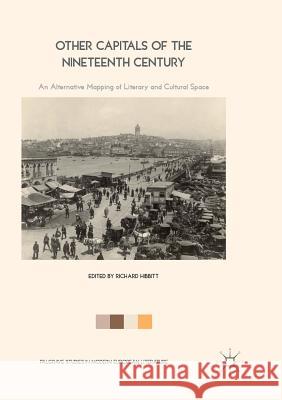Other Capitals of the Nineteenth Century: An Alternative Mapping of Literary and Cultural Space » książka
topmenu
Other Capitals of the Nineteenth Century: An Alternative Mapping of Literary and Cultural Space
ISBN-13: 9781349954063 / Angielski / Miękka / 2018 / 281 str.
Kategorie:
Kategorie BISAC:
Wydawca:
Palgrave MacMillan
Seria wydawnicza:
Język:
Angielski
ISBN-13:
9781349954063
Rok wydania:
2018
Wydanie:
Softcover Repri
Ilość stron:
281
Waga:
0.36 kg
Wymiary:
21.01 x 14.81 x 1.6
Oprawa:
Miękka
Wolumenów:
01
Dodatkowe informacje:
Wydanie ilustrowane











